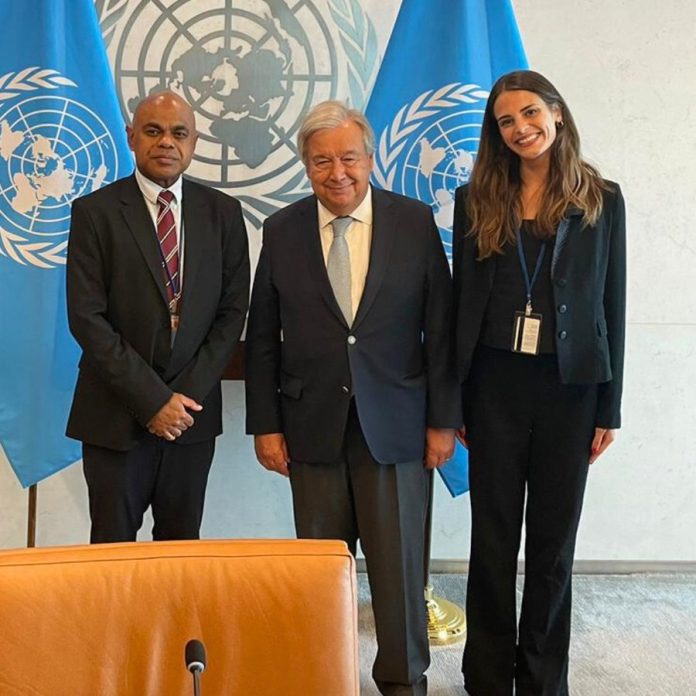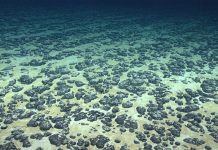
Vanuatu has taken a bold step in the fight for environmental justice by renewing its push for the recognition of ecocide as an independent crime under the International Criminal Court’s (ICC) Rome Statute.
The Pacific island nation, which first proposed the idea in 2019, is leading the global call for stronger legal mechanisms to hold accountable those responsible for the large-scale destruction of nature.
Vanuatu’s proposal defines ecocide as “unlawful or wanton acts committed with knowledge of severe, widespread, or long-term damage to the environment.”
The country is advocating for the addition of ecocide to the Rome Statute, alongside genocide, crimes against humanity, war crimes, and the crime of aggression, to address the growing global environmental crisis.
“Ecocide is not just an environmental issue, but a threat to peace, security, and human rights,” Vanuatu’s Permanent Representative to the United Nations, Ambassador Odo Tevi, said.
“It’s time the world acknowledges the gravity of these crimes and acts to protect the planet,” he said.
Vanuatu’s move comes at a time when environmental destruction has reached unprecedented levels, with reckless acts such as deforestation, ocean pollution, and industrial damage putting ecosystems and human lives at risk. Ecocide, commonly understood as the severe and reckless destruction of nature, continues to gain traction as a legal concept globally. While some countries and regions have made strides in recognising ecocide as a serious crime, there is currently no comprehensive international framework to address it.
Ambassador Tevi stressed that while environmental damage often results in harm to humans, the current Rome Statute only addresses environmental harm under very specific conditions, and primarily during wartime.
“The existing laws are insufficient,” Tevi explained.
“Very significant harm can be done to the environment without immediate human impact, but with devastating long-term consequences. Ecocide addresses that gap.”
Vanuatu’s proposal builds upon a 2021 definition of ecocide published by an Independent Expert Panel, which outlined the legal framework for ecocide. This definition has gained significant political and legal traction worldwide, leading to legislative developments in Europe and other regions. For example, the European Parliament recently adopted ecocide provisions in its revised Directive on the Protection of the Environment through Criminal Law.
“This definition of ecocide focuses on the severity of the outcome rather than specific prohibited behaviours. It ensures that any actions, whether intentional or reckless, that cause widespread or long-term damage to the environment, can be prosecuted under international law,” Tevi said.
Vanuatu, a nation on the frontlines of climate change, has been a consistent advocate for stronger international environmental protections. Rising sea levels, extreme weather events, and environmental degradation have disproportionately affected Pacific Island nations like Vanuatu. For years, these countries have voiced concerns about the lack of accountability for actions that cause severe harm to the environment and ecosystems critical to their survival.
At the core of Vanuatu’s proposal is the idea that environmental damage should not be contingent upon harm to humans.
“We’re witnessing the breakdown of life-sustaining ecosystems. These harms may not immediately affect humans, but the long-term effects will be devastating to local, regional, and even global populations of multiple species, including humans,” said Tevi.
The proposal outlines that ecocide should apply in both peacetime and conflict. Currently, the Rome Statute only addresses environmental damage in conflict situations, with extremely high thresholds for prosecution.
Vanuatu’s proposal would allow for prosecutions of environmental destruction during peacetime, targeting industries, governments, and individuals responsible for significant harm to the planet.
Vanuatu’s proposal has sparked widespread discussion within the international community. There is growing support from countries, legal experts, and environmental activists for the inclusion of ecocide as a crime under the Rome Statute.
However, the proposal will need to gain the backing of the Assembly of States Parties to the ICC, the body that oversees amendments to the Rome Statute.
Support for the proposal is growing among states that recognise the urgency of addressing environmental crimes, particularly in the face of climate change. Some countries in Europe and Latin America have already incorporated ecocide into their national legislation, and the European Union’s recent moves to address ecocide under its environmental laws signal that momentum is building.
“The recognition of ecocide as a crime sends a powerful message: the destruction of nature will no longer go unpunished,” Tevi emphasised. “This is about holding those responsible for environmental destruction accountable, whether they are governments, corporations, or individuals.”
Vanuatu’s proposal also highlights the need for enforceable legal protections for the environment that are not limited to human harm.
“Environmental damage is often overlooked until it begins to affect humans. But by then, it’s often too late,” said Tevi. “We need to act now to ensure the long-term protection of ecosystems and prevent irreversible damage.”
The push for ecocide as an international crime reflects a broader shift in how the international community views environmental protection. There is increasing recognition that environmental crimes pose a serious threat not only to ecosystems but to global security and stability. The inclusion of ecocide under the Rome Statute would mark a significant milestone in international law, signaling that environmental destruction is a crime of the highest order.
Vanuatu’s proposal comes at a critical time as the world grapples with the impacts of climate change, biodiversity loss, and pollution.
“This is not just about one country or one region,” Tevi said. “This is about protecting the planet for future generations. The harm being done to the environment affects all of us, and we need strong, enforceable laws to hold those responsible accountable.”
While there are challenges ahead, Vanuatu’s leadership has placed ecocide on the international agenda. The proposal will now be debated by the Assembly of States Parties to the ICC, with hopes that it will lead to the adoption of ecocide as the fifth international crime under the Rome Statute.
“We’re calling on the international community to recognise the urgency of this issue,” Tevi concluded. “Our survival and the survival of future generations depend on it. We need to act now to prevent impunity for the most serious actions against nature.”
As Vanuatu continues to rally global support, the next steps will involve gathering consensus from states and legal experts to push forward what could become a landmark decision in international criminal law.










